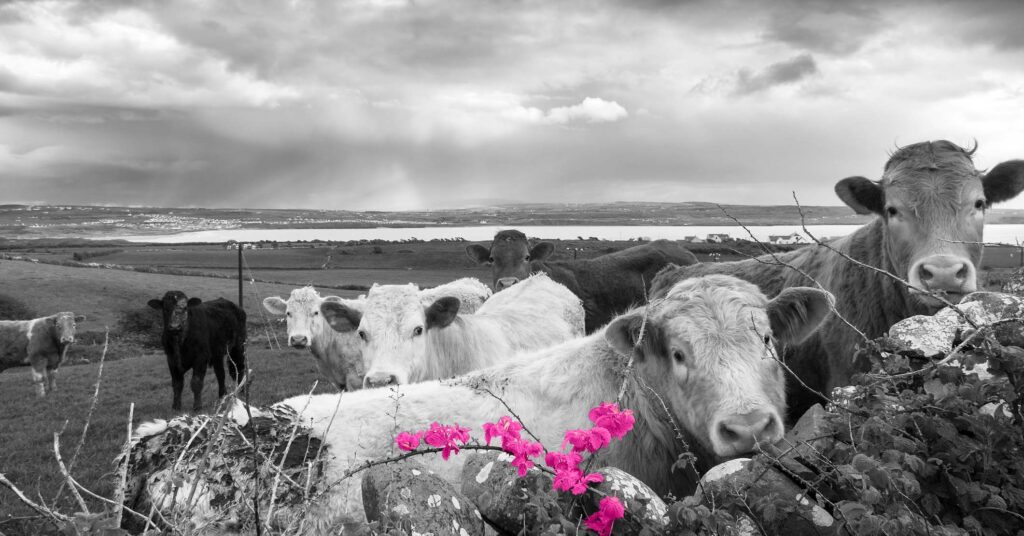Agricultural Tenancies
Help with Agricultural Tenancies and Related Issues
Agricultural tenancies are an important part of farming in the UK, as well as an important source of income for both landlords and tenant farmers.
The law regarding agricultural tenancies is complex and much of the legislation can easily be misinterpreted. Whether you are a landlord or a tenant, Fraser Dawbarns offer you advice and support with existing agricultural tenancies and can advise on and assist with the drafting of new tenancies.
Our Specialists
- 1
Different Types of Agricultural Tenancies
What is an Agricultural Tenancy?
An agricultural tenancy is an arrangement where a tenant has exclusive occupation of land over a definite period of time. The tenant must use this land for the purpose of running an agricultural business, which is broadly defined as growing crops or producing livestock for food.
It is reasonably clear, in most cases, what constitutes an agricultural business but it is not always straightforward. Is it agricultural or commercial use if a fruit grower uses part of the land for sorting and packing produce? What qualifies as agricultural use can also change, whereas horses used to qualify as agriculture, they no longer do and a tenant running a livery would require a commercial lease.
When it has been established whether there is an agricultural tenancy in place, it is necessary to ascertain which type of tenancy it is. Different types of tenancy have different rules regarding repairs, compensation, security of tenure and termination.
Agricultural Tenancies Created before 1st September 1995
If an agricultural tenancy was created before the 1st September 1995, it will be governed by the Agricultural Holdings Act 1986. Only a lease of an ‘agricultural holding’ of land and/or buildings for agricultural use qualifies as an Agricultural Holdings Act (AHA) Tenancy.
Agricultural Tenancies governed by the AHA are difficult to terminate and tenants enjoy succession rights for three generations, therefore many AHA tenancies continue to exist.
Agricultural Tenancies Created after 1st September 1995
The Agricultural Tenancies Act 1995 created a new type of agricultural tenancy. An agricultural tenancy created after this date will usually be a Farm Business Tenancy (FBT). Whereas AHA Tenancies are very protective of the tenant, there is freedom of contract between the parties with an FBT and it can therefore be as flexible or as concrete as the parties wish them to be.
Farm Business Tenancies are usually renewed on an annual basis until terminated. This is usually expressed as ‘one year from [the date the lease begins] and then from year to year’. These tenancies can be terminated more easily and there are no succession rights attached to them.
Support for Landlords and Tenants
If you are a tenant and have an agricultural tenancy, it is important to understand which one so that you know your rights. If you are a landlord, it is vital to understand the details of your tenancies so that you are in a position to manage them optimally.
Starting A New Farm Business Tenancy
The Agricultural team at Fraser Dawbarns can help landlords prepare a new Farm Business Tenancy. Tenants may be unsure whether to take out a new tenancy in their name or whether to use a company. There are implications for either option and our team can help you decide which of these options best suits your circumstances.
As with any contractual relationship, there will be sanctions for either party if they breach the terms of the contract. It is important for tenants to understand their terms and obligations, as a breach could result in the forfeiture of your tenancy. Likewise, a landlord found to be in breach of the terms of the contract could be liable for damages in favour of the tenant.
Our experienced Agricultural solicitors will help you to make sure your interests are represented and help you avoid problems down the line.
Common Issues with Agricultural Tenancies
Fraser Dawbarns can help you with a wide range of issues that agricultural landlords and tenants are likely to face. Contact the Agricultural team at Fraser Dawbarns for help with the following issues.
Rent
Depending on whether your tenancy is an AHA Tenancy or an FBT, there will be provisions for regular rent reviews.
The rent for AHA Tenancies can not be reviewed more regularly than every 3 years and the review will take into account the Terms of the Tenancy, The Character and Situation of the Holding, The Productive Capacity of the Holding, The Related Earning Capacity of the Holding, Comparables (similar holdings) and Disregards (improvements or dilapidation).
It is more straightforward to working out rent for FBTs. This will usually be based on the rent for similar farms on the open market.
If you are a landlord or a tenant who has a rent review due, the Agricultural team at Fraser Dawbarns has the necessary experience to help you to get the most out of these negotiations.
Repairs
Often maintenance and repairs can become an issue. The tenancy agreement should lay out who is responsible for repairing or maintaining a particular item and this should always be the first point of reference. In cases where the parties do not have a written tenancy agreement or in cases where repairs are not mentioned in the agreement a dispute can arise.
The Agricultural team at Fraser Dawbarns can support you through this, helping you to try and reach an agreement and avoid the costs associated with arbitration.
Regulatory Changes
As new regulations come in, landlords may be liable (at least in part) for the cost of providing improvements on a holding to enable a tenant to remain compliant. As with repairs, it is always best for the landlord and tenant to try and come to an agreement and avoid the risks of expensive litigation and damage to the landlord tenant relationship.
The Agricultural team at Fraser Dawbarns can help you towards an agreement, avoiding the costs associated with litigation.
Notice to Quit
A tenant served with a notice to quit will understandably be worried. These can be served for a number of reasons and a tenant needs to take action immediately as the time limit for a response is usually only one month.
A landlord serving a notice needs to make sure that they have followed all relevant procedures correctly and understand what a tenant could do to oppose such a notice.
In either circumstance, advice from the Agricultural team at Fraser Dawbarns can be invaluable in making sure that your interests are best protected.
Succession
A limited number of agricultural tenancies under the AHA code have rights of succession. Where succession is allowed, it can take place under three circumstances; on the death of a tenant, on the retirement of a tenant at the age of 65 or in cases where the tenant has been severely incapacitated. Applications for succession are made to the First Tier Tribunal and only two successions are allowed.
As there are strict time limits on an application for succession, we strongly recommend seeking advice from the Agricultural team at Fraser Dawbarns.
Other Tenancy-Related Issues
This list of legal issues relating to agricultural tenancies is by no means exhaustive, for any other related issue including; farm cottages, new buildings, surrender or extra land our team will be happy to help you.
Testimonials
Carla Tirrell is a lady I would return to time and time again for conveyancing matters. She is extremely efficient, prompt, polite and keeps us updated every step of the way.Fantastic work and highly recommended.Client - Kings Lynn Office
Why Choose Fraser Dawbarns to Help You?
An Experienced Agricultural Team
The services of a good agricultural land lawyer and a good agent cannot be overstated. At Fraser Dawbarns LLP we have a dedicated Agricultural team with a wealth of knowledge, who can help you avoid some of the pitfalls.
Years of experience working with the agriculture sector has put us in a strong position to help you with a wide range of legal issues relating to farming and agriculture. If you would like more information on how we can help you, your family and your farm, please contact a member of the agriculture team today.
Direct Access To Your Solicitor
Our agriculture team develop a good understanding of our client’s businesses and form close working relationships with our business clients. Clients who wish to arrange an appointment with our commercial solicitors can do so easily, visiting us at any of our offices across East Cambridgeshire and West Norfolk. We can also visit you at your business if you prefer.
Pricing Options
At Fraser Dawbarns we recognise that there is no ‘one size fits all’. With our flexible pricing options, we give our clients the choice of different pricing options. You can choose whether you would like us to undertake your work on a fixed fee basis or at an hourly rate, selecting the pricing option that best suits your needs.
No Hidden Charges
Clients opting for our fixed fee service, will know how much they will pay for the matter before we start work. Clients who prefer to be billed at an hourly rate will also be given a realistic range of costs before we begin. Transparency and trustworthiness are important to us and we will never surprise you with hidden charges that were not explained to you at the outset.
Contact Us Today
Our team will help you from the beginning of your case to the end, giving you total peace of mind. If you would like friendly, client focused advice on a wide range of legal issues, get in touch and see how we can help you.
Call or email us today and find out how we can make your life easier.
















